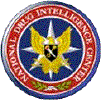ARCHIVED
January 1, 2006. This document may contain
dated information.
It remains available to provide
access to historical materials.

|
|
||||||||
|
Printable brochure (311 KB pdf) |
Ritalin
|
|
|
|
How is Ritalin obtained?
The Ritalin that is abused in the United States typically is diverted from legitimate sources. In some cases abusers obtain the drug from peers, friends, or family members. Often individuals who have legitimate prescriptions sell or give away their supply. Ritalin also is acquired through theft--from individuals with legitimate prescriptions or from school medicine dispensaries.
How is Ritalin abused?
Individuals who abuse Ritalin either swallow the tablets or crush them to produce a powder, which is snorted. Some abusers dissolve the tablets in water and then inject the mixture.
Who abuses Ritalin?
Abuse of Ritalin typically is associated with young people--preadolescents, teenagers, and young adults. The increased use of the drug to treat ADHD--a disorder that is prevalent among young people--has resulted in a corresponding increase in abuse. The University of Michigan's Monitoring the Future Survey indicates that 4 percent of high school seniors in the United States abused the drug at least once in the past year.
Although less common, Ritalin is abused among adults as well. The Drug Enforcement Administration has received reports of Ritalin abuse among diverse segments of the population--ranging from healthcare professionals to street addicts.
What are the risks?
When taken as directed by a physician to treat a legitimate medical condition, Ritalin has proven to be a safe and effective medication. Medical studies have shown that individuals who have ADHD and who take Ritalin orally in proper dosages do not become addicted to the drug.
Individuals who abuse the drug, however, risk binge use, psychotic episodes, cardiovascular complications, and severe psychological addiction. In addition, abusers who inject the drug risk further complications because insoluble fillers in Ritalin tablets can block small blood vessels. Injection users also place themselves at risk of contracting HIV (human immunodeficiency virus), hepatitis B and C, and other blood-borne viruses.
What is it called?
Street Terms for Ritalin
| Kibbles
and bits Kiddy cocaine Pineapple Skippy Smarties Vitamin R West coast |
Street Terms for injecting Ritalin with the prescription pain reliever Talwin
Crackers
One and ones
Ritz and Ts
Set
Ts and rits
Ts and Rs
Is abusing Ritalin illegal?
Yes, abusing Ritalin is illegal. Ritalin is a Schedule II substance under the Controlled Substances Act. Schedule II drugs, which include cocaine and methamphetamine, have a high potential for abuse. Abuse of these drugs may lead to severe psychological or physical dependence.
Other products of interest:
Check out Fast Facts on:
- Crack cocaine
- Crystal methamphetamine
- Drug-facilitated sexual assault
- Drug paraphernalia
- DXM
- Fentanyl
- Foxy
- Fry
- GHB and analogs
- Heroin
- Inhalants
- Jimsonweed
- Ketamine
- Khat
- LSD
- Marijuana
- MDMA
- Methadone
- Methamphetamine
- Methamphetamine laboratory hazards
- OxyContin
- PCP
- Powdered cocaine
- Prescription drugs
- Psilocybin
- Rohypnol
- Salvia divinorum
- Steroids
- Teens and drugs
- Triple C
- Yaba
Also available from NDIC:
- Huffing--The Abuse of Inhalants
- Prescription Drug Abuse and Youth
- Drugs, Youth, and the Internet
For more information on illicit drugs check out our web site at: www.usdoj.gov/ndic. Call 814-532-4541 to request NDIC products.
Contact us
Our addresses:
National Drug Intelligence Center
319 Washington Street, 5th Floor
Johnstown , PA 15901-1622
Telephone: 814-532-4601
FAX: 814-532-4690NDIC Washington Liaison Office
8201 Greensboro Drive, Suite 1001
McLean , VA 22102-3840
Telephone: 703-556-8970
FAX: 703-556-7807NDIC publications are available on the following web sites:
ADNET http://ndicosa
LEO home.leo.gov/lesig/ndic
RISS ndic.riss.net
INTERNET www.usdoj.gov/ndic

